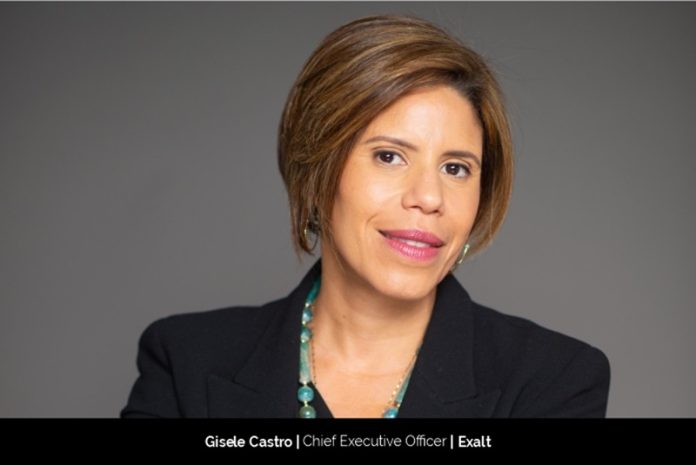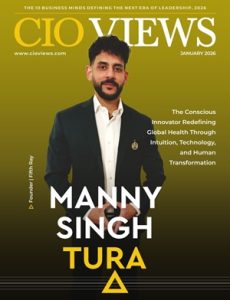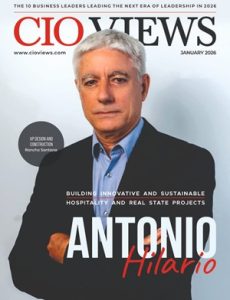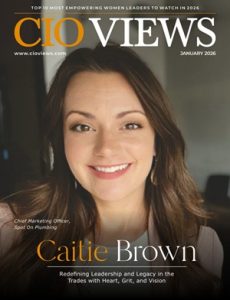In the world of leadership, where traditional boundaries are being shattered, Gisele Castro stands as a beacon of inspiration and resilience. As the CEO of exalt, a groundbreaking organization in the juvenile justice space, Gisele’s journey is marked by an unwavering commitment to redefine success and empower the next generation of leaders.
Her unique perspective on success, women’s leadership, and the transformative impact of her organization paints a vivid picture of a leader who not only envisions change but actively pioneers it. Join us as we delve into the insightful narrative of Gisele Castro, exploring her strategic leadership, challenges faced by women in unique spaces, and the profound vision she holds for the future.
From Journalism Aspirations to Advocating Change for Youth in the Nonprofit Sector
Reflecting on her initial career aspirations, Gisele shares that she wanted to become a journalist and have her own talk show. During high school at the School of Graphic Communication Arts in New York City, she pursued internships in news rooms and talk shows. However, her trajectory shifted when she became conscious of the United States’ propensity to mass incarceration.
Gisele attended Pace University in White Plains, NY, where she earned her Master of Public Administration with a focus on Non-Profit Management in May 2008. As part of her research course, she delved into the U.S. vs. U.K. Juvenile Justice System at Oxford University and explored the intricacies of the U.S. and Italian Government in Rome, Italy.
Prior to her master’s degree, Gisele obtained her Bachelor of Arts in Forensic Psychology from John Jay College of Criminal Justice in New York City in May 1998. Later, she expanded her knowledge by completing the Institute for Not-for-Profit Management at Columbia University in May 2011.
Through her studies, Gisele realized the challenges stemmed from dealing with systemic issues. This realization led her to reevaluate her career path and focus on addressing these challenges. She emphasizes the critical importance of educating people about these issues and creating a narrative to garner support for the organization, particularly in working with teenagers, the architects of our collective future.
Providing deeper insights into exalt’s operations and model, Gisele discusses the organization’s approach to working with young people referred by judges, probation departments, teachers, or community members. The model involves having judges resolve cases and providing academic support for young people to graduate from high school and pursue college or vocational school. Gisele emphasizes the cross-sectoral nature of the organization, integrating various disciplines and competencies in its staff.
In operationalizing the organization, Gisele underscores the importance of staff development, aligning it with the organization’s overarching goal of ensuring that 95 percent of young people do not re-engage in criminal activities after graduation. She notes the importance of staff development, with many former members becoming influential leaders in the field, reinforcing her commitment to building the next generation of leaders.
A Decade of Success Transforming Young Lives
Sharing her perspective on exalt’s growth, Gisele reflects, “The organization has been in existence since 2006. I have taken on the organization for the past seven years, but I’m one of the founding members. I was on the board; I was the board chair.”
The first success she highlights is transitioning the organization from a startup to an established phase. She notes the critical inflection point common in both for-profit and nonprofit organizations and considers this transition a significant achievement. Gisele draws a parallel with business startups and emphasizes her focus on investing in staff, stating, “I already anticipated that they’re looking for purpose.”
She underscores the success of the organization by evaluating staff satisfaction and professional growth, both within and outside exalt. Gisele also emphasizes the positive outcomes for young people involved with exalt, citing their academic and career achievements. She expresses pride in their transformation, especially considering their initial academic levels. While most of the youth served enter exalt reading at the 4th-6th grade levels, two years post-graduation: 95% have not re-offended, 98% are engaged in education and on track to graduate with a high school diploma or GED by age 20, 76% achieve sentence reductions, and 100% have completed paid internships in high-demand fields. Indeed, many are enrolled in college or have earned their BAs and are working or enrolled in graduate school.
Gisele identifies the intentional design of exalt’s model as a unique success, stating, “When I look at our organization, I have not seen a model like ours in the juvenile justice space. We focus on school disengagement, workforce development and court advocacy at the same time, changing the trajectory of youth and ensuring their long-term success. So, I consider that as a success, but that had to be intentional.” She sees the model as a replicable success that can be emulated and expanded.
In a reflective moment, Gisele discusses the inspiration behind her work, stating, “I think what I tell people is the truth.” She emphasizes the inherent challenges but instills confidence by pointing out that the young individuals served are already making strides in their academics, career pursuits, families and homes.
Redefining Juvenile Justice and Pursuit of Educational Excellence
Reflecting on the response and support garnered over the years in the nonprofit sector, Gisele emphasizes the rare instances of judges using their discretion to vacate sentences, showcasing the positive impact exalt has had on the legal system. The broad spectrum of support includes philanthropists, businesses, and even an architecture firm that contributed to the organization’s relocation and expansion.
When questioned about her greatest achievement as a leader, Gisele notes that it is the concept of exalt and juvenile justice, declaring, “It’s not an idea, it’s a problem and exalt is the solution.” She highlights the success of transforming underperforming young people academically and shaping a strong staffing model. Gisele takes pride in the organization’s role as a change agent with measurable outcomes, even finding personal satisfaction in her academic pursuit of an EdD in Leadership and Innovation at NYU Steinhardt.
Defining Success and Pioneering Women’s Leadership in Unique Spaces
On defining success at her level, Gisele provides insight, stating, “I give this question a lot of thought, depending on where I am and who I am speaking to and who my audience is. And I know that this audience is the business sector and individuals who are executives in terms of success.”
Gisele describes success as achieving something that was once only on paper, turning a concept into reality, and pushing an agenda to reach levels considered undoable. She emphasizes, “I describe success not as a common practice, but it is taking a concept, an idea, and extending a vision.”
Gisele reflects on her longstanding interest in women’s leadership and her understanding that leadership is not confined to a title or role but involves capacities developed since childhood. She shares her history of taking on leadership roles from college to high school, often with a new agenda.
Being around women who were pioneers and witnessing their leadership, Gisele notes, “In spaces where women lead for the first time, it is a skill to reorganize people’s psychology first.” She reflects on her current role as the first woman and first Latina leading an organization in the juvenile justice space, and acknowledges her curiosity and emphasis on understanding and exploring leadership dynamics in such contexts.
Growth, Adaptability, and Shaping the Legacy of Women in Leadership
Gisele reflects on the challenges faced as a woman in a leadership role, as “an opportunity to change systems and by design, and by default, you’re always growing.” She views leadership as both collateral and consequential, underscoring the importance of understanding the type of leader she aspires to be and the influence she can exert.
In discussing the impact of various leadership opportunities, Gisele notes, “Every single leadership opportunity that I have had, I’ve had to change and shift.” Addressing her role as a CEO, she emphasizes the uniqueness faced by women, particularly in the need to fundraise and sustain an organization. She emphasizes the continuous development required in leadership and the thoughtful consideration of both present and future scenarios.
Gisele emphasizes the importance of carefully considering what constitutes a strategy and a vision to effectively contribute to society and humanity. Within her role, she acknowledges that adaptive leadership is crucial for her to navigate the current situation and climate and finds it necessary to adjust and modify her leadership style based on the context, whether with governance, philanthropy, or her staff.
In reflecting on her leadership journey, Gisele emphasizes the constant need for personal and professional development. “I always have to be cognizant of where I am professionally,” she notes. Her focus lies in pondering how she can guide a group of individuals toward a shared vision. “Once I’m there, I’m consistently anticipating the next few years,” she adds, underscoring the forward-thinking aspect of her leadership approach.
Navigating Leadership with Strategy and Consciousness
In discussing her roles and responsibilities as CEO, Gisele shares insights into her daily routine. “I could wake up very early in the morning and have an early meeting, or I’m setting time out to review my day,” she notes. Gisele emphasizes the importance of intention in leadership, highlighting the energy it requires to move a team forward. “The way that I show up really matters,” she adds, emphasizing the need for consciousness in every interaction.
Gisele begins each day by examining her scheduled meetings, recognizing the significant agenda tied to each person involved. Her day encompasses a diverse range of activities, from meetings with funders and board members to engagements with judges and participation in City Council hearings. She acknowledges the constant anticipation inherent in leadership roles, noting that every decision has broader implications.
Reflecting on leadership as collateral, Gisele emphasizes the intentional and thoughtful nature of her day. “I am moving concepts forward, and it’s not that I live one day at a time. My day is informing next year,” she explains. She underscores the strategic impact of her agenda, suggesting that each meeting may shape the future as far ahead as 2025 or 2026.
Acknowledging the challenges faced by women leaders, Gisele reflects on the absence of a tailored framework and roadmap. She notes the pervasive influence of a traditional, male-centric approach and highlights the need for women to be well-prepared and anticipatory. “We’re always anticipating the next thing,” she says, emphasizing the constant navigation of uncharted waters.
Gisele expresses gratitude for well-wishers but raises the question of why women leaders often struggle to give themselves a real break. She acknowledges the consequential nature of taking time for oneself and the absence of discourse on this aspect of leadership.
Balancing Personal and Professional Harmony
Amidst discussions about her roles and responsibilities, Gisele sheds light on how she maintains equilibrium between her personal and professional life, revealing, “I work out, and I have a trainer. I have understood that my life is managed. And within my life being managed, I have to incorporate my family as being people that are also managed in my life.”
Gisele elaborates on the importance of downtime, emphasizing the need for quiet moments, and acknowledges certain non-negotiable aspects, such as her facials, which serve as sanctuaries allowing her to reconnect with herself. “Taking care of yourself is really spending time with the inner you,” she declares, drawing on lessons learned at Oxford University.
Gisele emphasizes the spiritual sense needed to stay connected with oneself, especially when dealing with the diverse energies of others. Reflecting on personal growth, she considers the practice of mindfulness essential, recognizing the continuous evolution that occurs each week.
In addressing the question of team motivation, Gisele shifts the focus to her team, acknowledging their humanity. “I think what they begin to see is that I’m very mindful of them too,” she asserts. Gisele upholds her responsibility for the well-being of her team, fostering an environment where individuals don’t lose themselves, and affirms her awareness of each team member, ensuring they never feel invisible in her presence.
Cultivating an Inclusive Organizational Culture
Describing the organization as a place where individuals don’t lose themselves, Gisele’s team members commend her ability to recognize each person’s unique skills and talents and emphasize the motivational aspect of interacting with the youth served by the organization.
“To see the changes that they make and to get to know them and to feel the sense of love and comfort that they have when they come into the organization, much like we feel that Gisele cares,” her team expresses. The sentiment is echoed by other team members who emphasize the inclusive nature of the organization, stating, “Anyone who walks into the organization becomes part of us.”
Addressing the concept of a servant leader, Gisele reflects on the significance of recognizing the equal importance of every individual in the organization. She emphasizes the power of collective humanity in overcoming challenges, especially when dealing with sensitive topics like mass incarceration, and encourages a perspective that recognizes the profound depth and potential within each person.
Navigating Life’s Depths with Leadership, Power, and Responsibility
Gisele recounts a poignant experience with her friend Maria, in Brazil, as Maria’s father battled cancer: “Before he passed away, they had a prayer, and as he was speaking, I realized we’re so complex as beings. We’re so deep in terms of the way we think. What he was saying was we live once, and give it a good go. If you’re given the big responsibility to lead, be very conscious of what it is that you’re doing. So, it’s also understanding that I know I have a lot of power. When you understand that depth and that magnitude, you begin to understand that leadership is the most delicate role that anyone could ever have. I think what distinguishes me is that I understood, even as a young person, that I was a leader. You have to say yes to that.”
Gisele highlights the responsibility that comes with shaping others’ trajectories and expresses humility in the face of her role, noting that people saying yes to her signifies an opportunity to inspire others to embrace leadership without fear of its consequences. Expressing humility, she underscores the need to ensure that others feel empowered to take on leadership roles, transforming the perception of leadership from daunting to inspiring.
Putting Young People On the Path Toward Successful Access To Careers
Transitioning to future plans, Gisele shares that her vision extends to a state level, and ultimately beyond, requiring deep engagement with the business sector. She outlines key initiatives, including collaboration with the tech industry to ensure young people aren’t left behind in the ever-advancing world of technology.
Another focal point is the establishment of an institute, driven by Gisele’s belief in adult learning principles and expanding the organization’s influence in the field, through training and consultation on exalt‘s proven model, including its effective fundraising strategy, plus guidance, analysis, and feedback on local, state or federal policy.
Highlighting the distinction between a job and a career, Gisele expresses the goal of providing young people access to a career pathway. She emphasizes the vision of enabling thousands of young individuals to access opportunities beyond their immediate surroundings, breaking free from limitations imposed by legal constraints.
The broader vision encompasses becoming a leader in juvenile justice not only in New York but also across the nation and globally. Gisele aims to share insights and solutions for creating humane policies that prioritize human dignity. Focusing on Black and Brown communities and addressing universal questions, the organization aspires to be a beacon of systemic change.
In a personal touch, Gisele shares her aspiration to earn a EdD., not merely as a degree but as a means to contribute further to research and advocacy. She believes this additional credential will validate the effectiveness of investing heavily in young people.
A Commitment to Strategic Leadership, Continuous Learning, and Adaptability
Gisele characterizes her leadership style as “the strategist, and not in a negative way.” She elaborates on the multifaceted nature of being a strategist, emphasizing the role of connection in her leadership. Gisele reflects on a pivotal moment in her career, dealing with a substantial budget deficit, which prompted her to recognize the importance of strategic thinking.
Gisele’s colleague, Inga, agrees with the label “strategist,” and acknowledges her ability to move mountains and change systems, emphasizing the layers of strategy within her approach, in alignment with influential thinkers, and applying theories as strategies.
Gisele herself contemplates the dual roles of being a learner and an executive leader. She acknowledges the need to understand theories and apply them effectively, citing adaptive leadership as an example. Gisele recognizes the consequential nature of executive decisions and the complexity of life that such roles entail.
Know Yourself and Forever Be a Learner
In offering guidance to aspiring businesswomen, Gisele imparts valuable lessons drawn from her own experience. “Know yourself. Really know yourself!” she advises. Recognizing the importance of diverse competencies, Gisele emphasizes the need for continuous self-investment in learning.
Encouraging women to embrace the journey, Gisele underscores the significance of anticipating and preparing for the challenges that come with stretch assignments. She highlights the collaborative nature of women but emphasizes the critical role of understanding one’s network, both within and outside familiar circles.
Preparation takes center stage in Gisele’s advice, with a repeated emphasis on its importance. She cautions against rushing into roles without readiness, acknowledging the potential consequences for women and the need to build a strong legacy. Gisele urges women to be fair to themselves, advocating for a thoughtful and gradual process.
A key piece of advice is the value of having a good mentor. Gisele acknowledges the soundness of common advice while emphasizing the intrinsic work within individuals. “The work is within you. Be ready,” she stresses, emphasizing the ongoing nature of learning in leadership.
Addressing the potential challenges that may feel debilitating, Gisele advocates for psychological readiness and the ability to have fun in one’s leadership journey. She shares her enjoyment of meeting people and attending events but acknowledges that leadership styles may vary, emphasizing the importance of recognizing and building on individual competencies.
Reflecting on her organizational approach, Gisele highlights the creation of a learning environment that embraces the idea that leaders don’t need to know everything but should always be open to learning. “You will forever be a learner,” she affirms, encapsulating the essence of continuous growth and development in women’s leadership. “I’m forever a learner. I don’t envision myself ever retiring. I could see myself still at 90 doing something. And the world is that beautiful. It’s that complex, but that beautiful.”
Gisele expresses her optimism about the future, attributing this anticipation to her openness to life and continuous learning, stating, “I also know that the best is yet to come, and I have not seen that.” She acknowledges the ongoing growth of the people she has encountered on her journey, emphasizing that as the collective expands, she believes she has not yet reached her maximum potential.
With a focus beyond personal achievements, Gisele underscores her awareness of the impact she is making on numerous lives. “This is not about me,” she affirms, expressing the hope that, as the collective impact reaches thousands, she will witness a profound transformation. Her ultimate aspiration is that people lead happy and healthy lives, making a positive contribution to the world. In her own words, she encourages, “People, live your life.”
Conclusion
In the tapestry of leadership, Gisele Castro’s story weaves threads of innovation, resilience, and a relentless pursuit of positive impact. From her early aspirations in journalism to steering a transformative organization like exalt, Gisele’s narrative is a testament to the power of purpose-driven leadership.
As she navigates the complex intersections of women’s leadership, organizational growth, and personal well-being, Gisele leaves us with a resonant message — the best is yet to come. Her vision extends far beyond personal milestones, embracing a collective journey towards a better world.
With every strategic move and empathetic decision, Gisele Castro is shaping not just a successful organization, but a legacy of empowerment, advocacy, and the unwavering belief that true success lies in making a positive difference in the lives of others.





